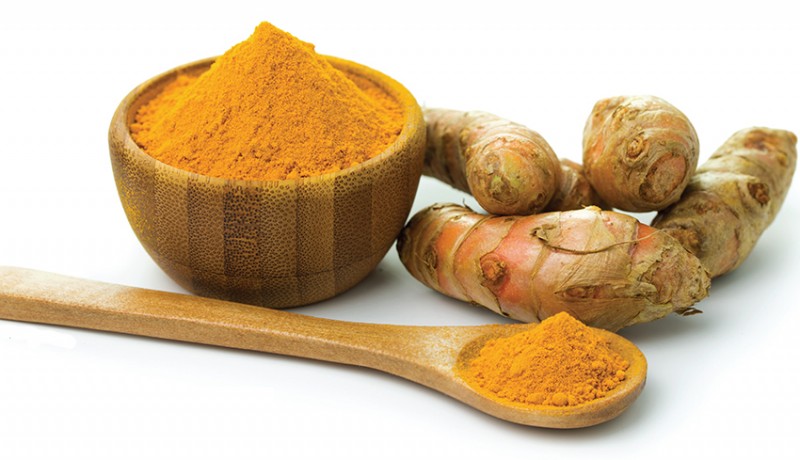
Health

Beat The Chill With The Right Foods, Says Naini Setalvad.
As the winter frost sets in, there’s a nip in the air. With the drop in temperature, the mornings become lazy and the evenings even cooler. Unfortunately, winter is also the time when you tend to catch colds, coughs and influenza. You drink less water as you do not feel thirsty and, in turn, your body gets dehydrated. This is also the time when many silvers experience dry skin, painful joints, lethargy, depression and even chronic obstructive pulmonary disease. However, your diet can come to the rescue. Traditional Indian medicine categorises foods into warming and cooling foods. So, besides layering your body with fuzzy clothes, consume warming foods that generate heat in your body to boost your immunity and prevent winter woes. Here are some foods to keep you warm and toasty this season.
GHEE
Known as liquid gold, ghee is absolutely essential during winter. It lubricates joints, prevents constipation, soothes sore throat and promotes memory and energy. Being balanced, soothing, moisturising, satiating and nourishing, it is considered an ultimate sattvic food. Use daily to either cook vegetables or dal, or add it to your rotis and rice. And make it a point to use cow’s ghee.
GINGER
The spicy warmth you feel when you eat a ginger root is what stimulates blood circulation and eases congestion in the throat and lungs. Ginger is a natural anti-inflammatory food that prevents and soothes all types of arthritis, bursitis and other musculoskeletal ailments. Add it to vegetables or make piping hot tea with it to relieve you of cold.
TURMERIC
Known as India’s other gold, turmeric contains amazing healing properties; it is anti-inflammatory and an antihistamine. It prevents and cures throat or chest infections and flu. It also boosts immunity, prevents rheumatoid arthritis and retards the progression of Alzheimer’s and cancer. Fresh turmeric root is found best in winter months. Add it to your plate daily and enjoy an infection-free winter.
SEEDS AND NUTS
Seeds and nuts contain good quality fat that promotes better health, lowers cholesterol and boosts immunity. Sesame seeds are a rich source of calcium; cashew nuts contain zinc; almonds are rich in Vitamin E; pistachios contain Vitamins B6 and A; and walnuts are an excellent source of Omega 3 fatty acids. All the above nutrients are needed to maintain good health in winter. Eat them directly or add to your beverages and desserts.
FRUITS AND DRIED FRUITS
Fruits like orange, guava and amla are high in Vitamin C and help prevent common cold and flu during winter. Dried fruits like dates, figs, prunes and apricots are also warming foods. Packed with fibre, they help prevent constipation, dry mucus and satisfy your sweet cravings. Like fruits, these contain less than 1 per cent fat.
LEAFY GREENS
Leafy greens are a boon to mankind. They are a rich source of calcium, iron, beta-carotene and potassium, and an exceptional source of fibre. Greens like spinach and fenugreek ease lung congestion and are excellent for your immune system during winter. You can either have them as a soup or add them to your vegetables, roti, rice or dal. The best way to cook greens is to steam them; you can even sauté them in cow’s ghee. Remember to squeeze lemon on top as Vitamin C helps absorb iron from the greens.
GRAINS
Winter is the perfect time to swap wheat with makkai and bajra for rotis. These winter grains keep your body energised for a longer time and prevent lethargy that sets in as the temperatures drop. Remember to add a spoonful of cow’s ghee to the flour while kneading, for easy digestion.
OTHER WINTER REQUIREMENTS
Sunlight: Sunlight is an important food for your body that helps beat the winter frost. Being a natural source of Vitamin D, it helps in the absorption of calcium and prevents pain in the joints, knees and back. Vitamin D also promotes memory, is a great mood-booster and reduces the chances of getting dementia and Alzheimer’s.
Water: Drinking water can be very challenging during winter, as one tends to feel less thirsty. However, lack of water causes innumerable health problems like dehydration, digestive disorders, urinary tract infections, joint pains and fatigue. So, remember to drink at least eight to 10 glasses of water a day. Now that you know which foods are important to eat during winter, go ahead and add them to your diet for excellent health, good mood, superior memory, better immunity and a pain-free winter. Remember, nature has its reasons, so eat according to the seasons.
AMLA AND TURMERIC CHUTNEY
Ingredients
- Fresh turmeric root: 250 gm
- Amla (Indian gooseberry): 500 gm
- Salt and lemon, to taste
Method
Chop the turmeric into pieces. Deseed the amla and chop into pieces. Blend the amla, turmeric, salt and lemon in a grinder and make a paste. Serve the chutney as an accompaniment to any dish.
SEEDS MIX
Ingredients
- Almonds: 25 gm
- Fennel seeds (saunf): 50 gm
- Sesame seeds (til): 50 gm
- Flaxseeds (alsi): 50 gm
- Ghee: 1 tsp
- Rock salt and lemon, to taste
Method
Heat ghee in a pan. Add almonds (chopped lengthwise) and roast for 5-7 minutes till crisp. Take fennel and sesame seeds in a vessel. Add salt and lemon and mix well. Dry-roast the seeds continuously on slow heat till crisp. Add flaxseeds and sautéed almonds to this mixture and toss well. Serve.
SPINACH SOUP
Ingredients
- Spinach leaves: 1 bunch; torn by hand
- Bay leaf: 1
- Ginger: ¼-inch piece
- Cow’s ghee: 1 tbsp
- Juice of half a lemon
- Salt to taste
Method
Heat ghee in a pan and sauté the spinach leaves, bay leaf and ginger in it for a few minutes. Allow the mixture to cool. Now, remove the bay leaf and run the mixture in a blender. Add salt and lemon juice as per taste. Serve hot.
WINTER WELLNESS POTION
Ingredients
- Mint leaves: 6
- Tulsi (holy basil) leaves: 6
- Lemongrass: 2 tbsp; chopped
- Ginger: 1 tbsp; grated
- Water: 500 ml
Method
Boil all the above for a few minutes in a pan and strain. Serve directly or mixed with honey or jaggery.
Setalvad is an obesity and lifestyle disease consultant who offers diet counselling at Health for You, a wellness clinic in Mumbai, as well as online. Visit www.nainisetalvad.com for more details or write to contact.us@harmonyindia.org if you have any queries for her
Photo: iStock Featured in Harmony — Celebrate Age Magazine January 2017
you may also like to read
-
Hot tea!
If you enjoy sipping on that steaming hot cup of tea, think twice. New research establishes a link between drinking….
-
Weight and watch
If you have stayed away from lifting weights at the gym, thinking it might not be a good idea for….
-
Toothy truth
Research has established a clear association between cognitive function and tooth loss when cognitive function score was categorised into quintiles…..
-
PRODUCT OF THE MONTH
Automatic Blood Pressure Monitor Measure your blood pressure and pulse rate with no fuss Hypertension, or high blood pressure, could….







